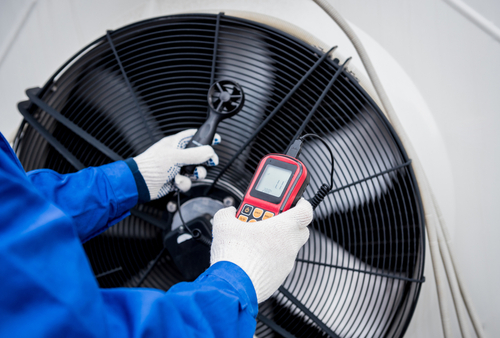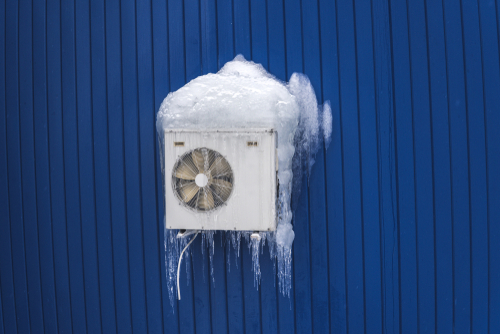What is the Average HVAC System Lifespan? (And Helpful Tips to Extend It!)

HVAC systems play a crucial role in maintaining comfortable indoor temperatures, ventilation, and air quality in our homes and workplaces. However, like any other mechanical equipment, HVAC systems have a finite lifespan. In this article, we will explore the average lifespan of HVAC systems and provide helpful tips on how to extend their longevity.
The Average Lifespan of HVAC Systems
The lifespan of an HVAC system can vary depending on several factors, such as the quality and brand of the equipment, regular maintenance, usage patterns, and environmental conditions. On average, a well-maintained HVAC system can last between 15 to 20 years. However, some systems may start experiencing efficiency issues or breakdowns after around 10 years.
Factors that Affect HVAC System Lifespan
Several factors can impact the lifespan of an HVAC system:
1. Maintenance: Proper and regular maintenance is essential to ensure the longevity of an HVAC system. Regular inspections, cleaning, and servicing by a professional HVAC technician can identify potential issues early and prevent major breakdowns.
2. Usage and Load: The frequency and duration of use also impact the lifespan of an HVAC system. Systems used year-round or subjected to heavy loads, such as in commercial spaces or homes with large families, tend to have a shorter lifespan.
3. Environmental Conditions: The climate and environmental conditions in which an HVAC system operates can affect its lifespan. Extreme temperatures, high humidity, airborne particles, and corrosive environments can put additional strain on the system, increasing wear and tear.
Tips to Extend the Lifespan of HVAC Systems
1. Regular Maintenance: As mentioned earlier, regular maintenance is crucial for extending the lifespan of an HVAC system. It is recommended to schedule professional HVAC inspections and maintenance at least once a year, preferably before the start of the heating or cooling season. This will ensure that any potential issues are addressed promptly, improving the system’s efficiency and reducing the risk of breakdowns.
2. Change Air Filters: Air filters play a vital role in maintaining indoor air quality and protecting the HVAC system from dust, dirt, and debris. Clogged filters restrict airflow, increase energy consumption, and put strain on the system components. Regularly changing the air filters, typically every 1-3 months, depending on usage and environmental conditions, will help keep the system running efficiently and extend its lifespan.
3. Clean Outdoor Unit: The outdoor unit of an HVAC system (the condenser unit) is exposed to outdoor elements, such as leaves, dust, and debris. Ensure that the unit is clean and free from obstructions. Regularly remove any debris and trim vegetation around the unit to allow for proper airflow.
4. Maintain Consistent Temperatures: Rapid temperature fluctuations can put stress on the HVAC system. It is recommended to set the thermostat to a consistent temperature and avoid frequent adjustments. This will allow the system to operate more efficiently and reduce unnecessary wear and tear.
5. Invest in Programmable Thermostats: Programmable thermostats allow you to set temperature schedules based on your daily routine. By automatically adjusting the temperature when no one is present or during sleeping hours, programmable thermostats help reduce energy consumption and give the HVAC system some rest, ultimately extending its lifespan.
6. Address Issues Promptly: If you notice any unusual sounds, strange odors, or inadequate heating/cooling, do not ignore them. These may be signs of underlying issues that, if left unaddressed, can lead to more significant problems and costly repairs. Contact a professional HVAC technician as soon as possible to diagnose and fix the problem.
Summary
Understanding the average lifespan of HVAC systems and implementing proper maintenance practices can help extend their longevity. Regular maintenance, changing air filters, cleaning the outdoor unit, maintaining consistent temperatures, utilizing programmable thermostats, and addressing issues promptly are all important factors in maximizing the lifespan of your HVAC system. By following these helpful tips, you can ensure that your HVAC system operates efficiently and provides comfort for many years to come.
Need HVAC Services in St. Louis, MO?
Keep cool or stay warm with Ashley Brothers Heating & Cooling. Since 1999, Ashley Brothers have been providing residential and commercial services to the St. Louis and Jefferson County area. We specialize in the installation of new equipment, heating and cooling repair, and furnace cleaning. Craftsmanship is important, equipment choice is too. We work with only top brands like Amana, Goodman, York, and McLain. It is understandable that replacing or upgrading your equipment can be daunting. Ask us about financing. We repair all heating and cooling equipment brands. Heating and cooling repairs can happen at random, take advantage of our 24-hour emergency service. Call us today about your concerns.

